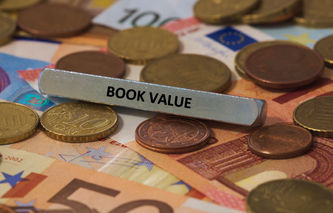Definition
Often used by analysts to measure the safety of an investment, the book value per share, or BV, calculates the dollars per share left over after all debt of the company has been paid to creditors.
Calculation
Book Value per Share = Stockholders' Equity / Shares of Common Stock Outstanding
Where:
Stockholders' Equity = Total Shareholder Equity - Preferred Equity
Explanation
The book value per share is the accounting value of each share of stock, which can be very different than the stock's market value per share. Market value, or price per share, is a reflection of supply and demand for a stock, which is usually based on some expectation of future performance. Book value is based on retained earnings, and the number of shares outstanding.
Analysts sometimes compare the market price to book value per share. When the market price or value is currently set below the book value, the company is considered undervalued, and might be deemed an attractive stock to buy.
Example
The balance sheet of Company A indicates Total Stockholder Equity of $15,420,000, and Preferred Stock of $3,767,000. Company A issued 693,870 shares of common stock. The book value per share would then be:
= ($15,420,000 - $3,767,000) / 693,870 = $11,653,000 / 693,870, or $16.79

